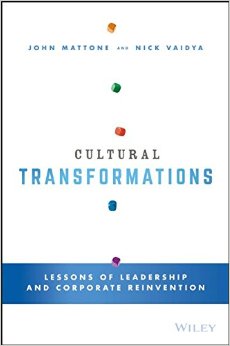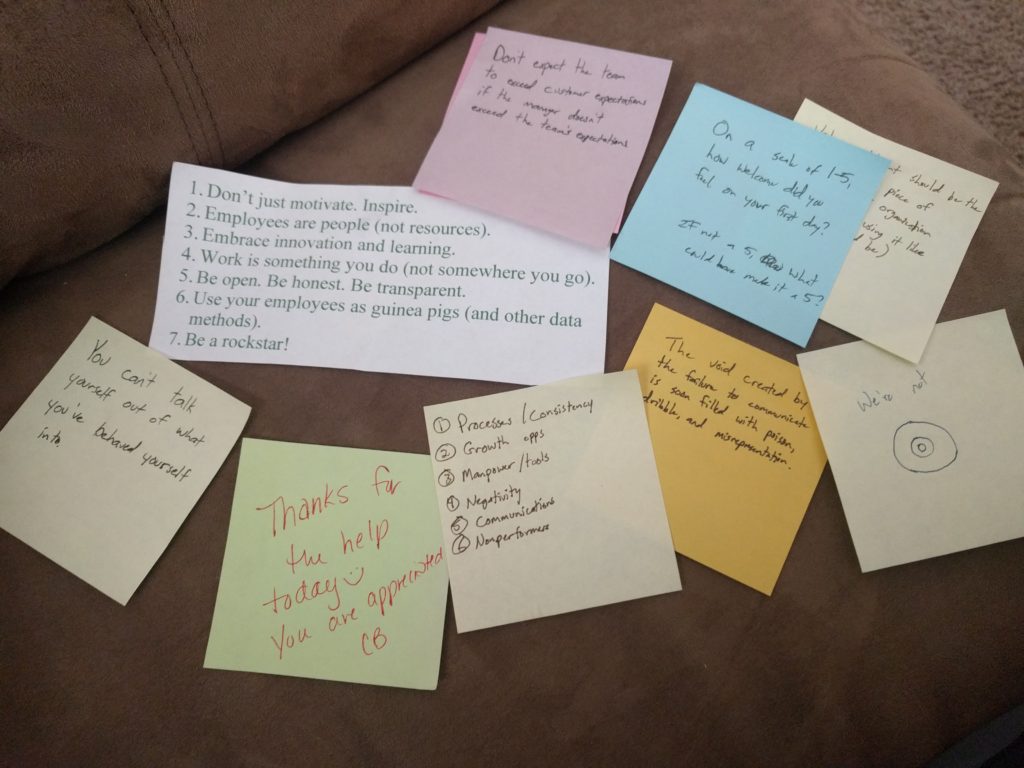I recently finished up a new book and have been looking forward to writing this review. There are three key things I picked up from the book that I want to share. No wasting time–I’m diving right in. :-) By the way, if the name sound familiar, this is the third book I’ve reviewed for John. He knows what he’s talking about.
Key Lessons from Cultural Transformations: Lessons of Leadership and Corporate Reinvention by John Mattone and Nick Vaidya
 First up, stories are powerful. I think we all know that (and I’ve talked about it both lately and in the past), but it bears repeating. The bulk of this book is made up of interviews with CEOs from companies across the globe. One of the biggest challenges for HR is understanding what the business needs and how to solve those problems. In this book you get to peek into the heads of executives that make the top-level decisions every day, and it’s powerful stuff.
First up, stories are powerful. I think we all know that (and I’ve talked about it both lately and in the past), but it bears repeating. The bulk of this book is made up of interviews with CEOs from companies across the globe. One of the biggest challenges for HR is understanding what the business needs and how to solve those problems. In this book you get to peek into the heads of executives that make the top-level decisions every day, and it’s powerful stuff.
Secondly, Mattone points out early in the book the power of innovation, but he doesn’t do it like everyone else. Instead of focusing on what we typically think of as product innovation, he points out the need for innovation throughout the organization. Here’s the snippet:
When executives change their leadership culture, they are rewarded with significant, sustainable outcomes, including… genuine organizational innovation for not only products but also the organizational systems required to sustain innovation.
Do you know what those organizational systems are that he alludes to? Hint: it includes HR! He’s talking about the infrastructure that enables the organization to create value for customers. From marketing and HR to finance and more, there are so many opportunities to truly innovate within the processes and systems we use to drive the organization on a daily basis. This is refreshing, because it departs from the typical look at innovation from the product side–for example, creating the next iPhone. If my internal systems are better, I don’t necessarily have to create the best thing since sliced bread–I can outpace other companies simply due to the effectiveness and efficiency of our systems. That’s a powerful thought.
Finally, the book makes mention of this concept of a “culture value proposition.” If it sounds familiar, you’re probably thinking of its cousin, the employer value proposition, which is the sum of the things you have to offer to candidates/employees to make them join/stay with your organization. What I like is that this looks at culture, a topic I’m pretty fanatic about, at a deeper, more systematic level. From the book:
A strong CVP foundation leads to: capability… commitment… and alignment.
Think about the employees within your company. Are they capable, committed, and aligned with your strategy and goals? If not, it might be time to rethink your culture value proposition, or what your culture can offer to them.
Final Thoughts
If you are interested in checking out what CEOs have to say about culture and business reinvention, or if you’re looking to hone your own organization’s culture value proposition, then I encourage you to check out Cultural Transformations: Lessons of Leadership and Corporate Reinvention by John Mattone and Nick Vaidya (find it on Amazon here). You can also check out the other books John has written: Intelligent Leadership and Talent Leadership.
Find other book reviews here.

 First up, stories are powerful. I think we all know that (and I’ve talked about it both
First up, stories are powerful. I think we all know that (and I’ve talked about it both  Weird interview questions don’t work. I had to say it. See, someone pitched the 25 weird interview questions article at
Weird interview questions don’t work. I had to say it. See, someone pitched the 25 weird interview questions article at